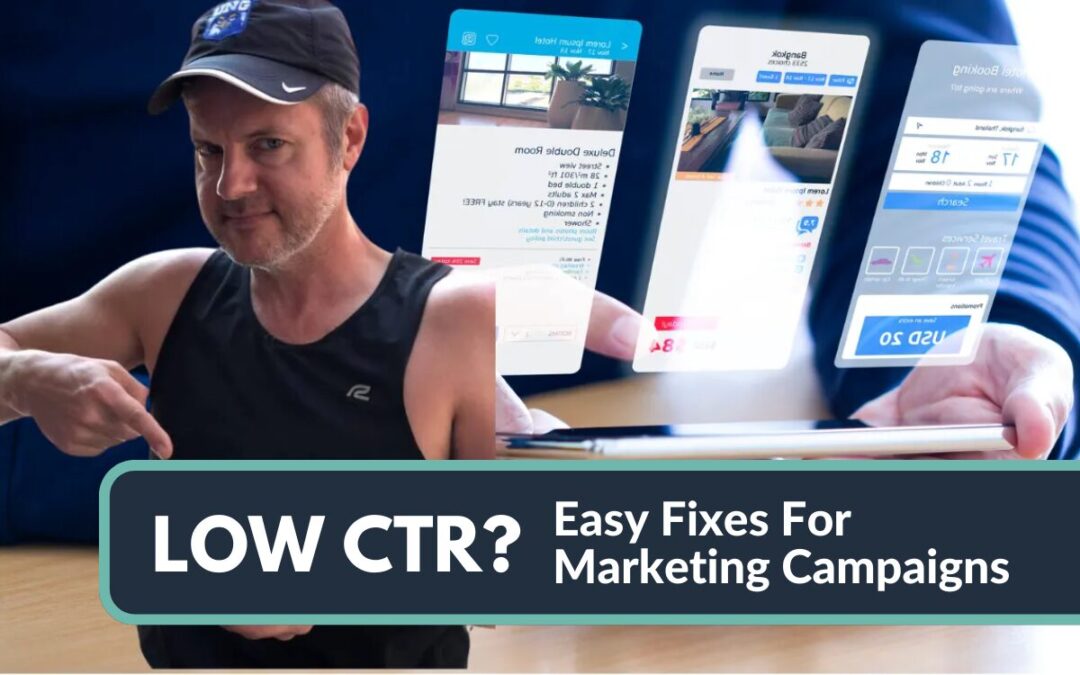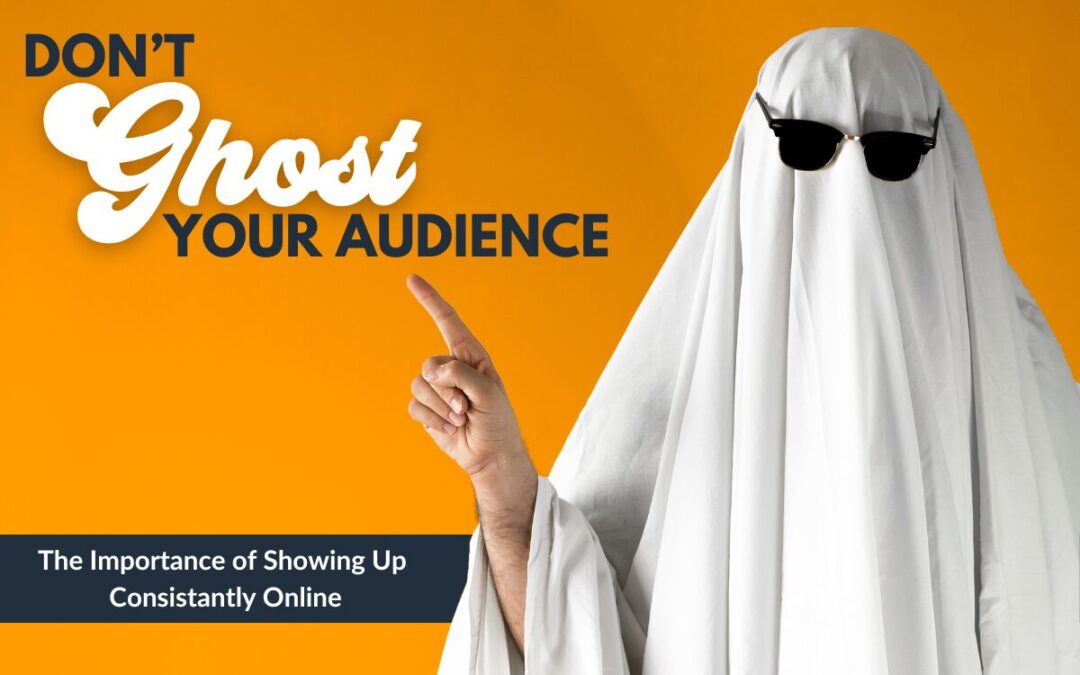We need better marketing.
You may be thinking, “I’m sick of ads, Joe. Why do I want more marketing?” Well, I said “better” marketing, not more marketing. Marketing helps people find things. Are you a start-up business trying to land new clients? Are you a consumer looking for specific products or services? Are you tired of swimming through irrelevant “noise” trying to find what you are looking for? Whether you’re selling something (product or idea) or buying something, you can be more effective with better marketing.
When I first entered the workforce in the early ’90s, I didn’t set out to become a professional marketer. Quite the contrary, I was leaving military service and trying to begin a career involving finance and technology. During my first decade in the workforce, I saw how important marketing and sales were in business. Whether I was trying to sell or promote something or find something, marketing was involved. Marketing, at its core, is the process of promoting and selling products, services, and even ideas.
Traditionally, business schools have struggled to teach small business marketing, and they definitely don’t do a good job teaching sales. This problem has worsened as algorithmic marketing and sales have amplified loud voices, making them louder. It’s getting harder and harder to promote and find quieter voices. Let’s fix that. In this article, we’ll explore what “better” means in the context of marketing and how it can be achieved whether you’re a buyer or seller.
Starting With Definitions
Let’s start with the definition of “better.” The word “better” refers to an improvement or a higher standard of quality, performance, or condition compared to a previous state. It signifies a positive change or progression. In everyday use, “better” often implies superiority or preference, suggesting that something is more desirable, efficient, or effective. Admittedly, the concept of “better” is subjective, as it depends on individual perspectives, goals, and criteria for what constitutes an improvement. To me, “better” implies the pursuit of excellence and the striving for quality.
The word “marketing” is based on the word “market,” so let’s consider that first. A “market” is a place where people exchange goods, services, and ideas. We like to talk about living in a “free market” society. A market can be physical, such as a grocery store, community festival, auction hall, or even a shopping mall. It also extends to the virtual world in the form of online shopping, forums, and social media. Marketing, simply stated, is the promotion of products, services, and ideas so that interested parties know about them in the hopes that they will buy or accept them. In short, marketing helps people find things of interest.
Marketing Through the Eyes of the Buyer
As buyers, we are constantly bombarded with marketing messages. Some of these are enjoyable, like high-quality commercials that entertain, inform, and even inspire us. Think of the heartwarming holiday ads from major retailers or the clever and humorous spots during the Super Bowl. These commercials resonate because they connect with us on an emotional level, tell a story, or provide a memorable experience.
On the flip side, there are ads that annoy us. These are often intrusive, irrelevant, or overly repetitive. For example, pop-up ads on websites or irrelevant ads that follow us around online can create a negative perception of the brand. For buyers, better marketing means receiving messages that are relevant, respectful, and valuable.
Marketing Through the Eyes of the Seller
For sellers, marketing is a tool to reach potential customers and persuade them to buy products or services. Effective marketing can drive sales, build brand loyalty, and differentiate a business from its competitors. However, achieving better marketing requires understanding and addressing the needs and preferences of the target audience. High-quality commercials work well because they align with the brand’s values and the audience’s expectations. They are crafted with care, focusing on storytelling, aesthetics, and emotional appeal. Sellers must avoid practices that irritate potential customers, such as aggressive sales tactics, misleading information, and over reliance on AI-generated content (one of my pet peeves).
Marketing Beyond Commerce
Marketing is not confined to commerce; it extends to any area involving promotion, publicity, or persuasion. Nonprofits use marketing to increase awareness, recruit volunteers, and raise funds. For a nonprofit, marketing is essential to enable them to support vital causes and reach those in need. Politicians use marketing to win votes, shape public opinion, and communicate their policies and visions to the electorate. As I write this, we in the middle of a historic Presidential election where we can see the impact of marketing first hand. Individuals use marketing to build personal brands on social media to showcase their skills, share their stories, and connect with like-minded communities. Educational institutions market their programs to attract students, while advocacy groups use marketing strategies to drive social change and mobilize supporters. In essence, marketing is a powerful tool for anyone seeking to influence, inform, or engage an audience, regardless of the context.
Example Situations That Need Better Marketing
Here’s some real world examples in our own community that could benefit from better marketing:
- Entrepreneurs trying to land their first client.
- New restaurants looking for customers.
- Families looking for community events.
- Governments recruiting new law enforcement officers.
- Nonprofits hoping to increase monthly giving.
- Existing businesses promoting a new product or service.
- Homeowners looking for a reputable lawn care service.
- Recent college graduates looking for new jobs.
- Animal adoption agencies looking for fosters.
- Struggling families looking for food assistance.
How can we help people find what they are looking for? Better marketing! I’ve built most of my career around marketing, particularly community marketing. Over the years, I’ve seen a lot of bad marketing. Let’s turn that around. Here’s my Better Marketing Manifesto on how we can all do a better job.
Better Marketing Manifesto
- Know your audience – Understand who they are, what they need, and how they behave. Doing that will help ensure your message is relevant.
- Create value – Offer products, services, and information that is of interest to your audience. It’s not about you, it’s about them. Focus on solving their problems and enhancing their lives. By prioritizing value, you build trust and loyalty.
- Tell a story – Connect with your people emotionally by using storytelling. Stories help humanize your message and create a deeper connection with people.
- Be authentic – Be genuine and sincere in your marketing message. People can spot a fake – whether it’s a fake AI-generated image or a false promise of success. It’s okay to be optimistic, but be realistic too.
- Maintain consistency – It’s important that messaging, branding, and tone are consistent across all marketing channels (web, social media, in person). Consistency reinforces your brand identity and reliability by establishing a strong, recognizable image in the minds of people.
- Engage and listen – Actively interact with people to make them feel heard and valued. Engagement shows people that you value their input and are committed to helping them.
- Ground your strategy in data – Use analytics to track performance, understand trends, and make informed decisions to optimize your efforts. Data-driven decisions lead to more effective and efficient marketing outcomes. This also helps your target audience find what they are looking for quicker.
- Respect privacy – Safeguard personal information and be transparent about how you use data. Prioritize consent and adhere to privacy laws and regulations to build trust and safeguard your audience’s trust. Respecting privacy not only complies with legal requirements but also enhances your reputation as a trustworthy brand.
- Adapt and innovate – Watch the market and consider embracing new technologies and trends where appropriate. Be willing to adapt your strategies to keep your marketing fresh and effective. Continuous innovation ensures that your marketing remains relevant and competitive.
- Focus on good – If I was to summarize my better marketing manifesto with a single point, it would be this – focus on doing good. Highlight the ways your products, services, or initiatives contribute to the betterment of all concerned (sound familiar, Rotarians?). Marketing is not about forcing anyone to buy or accept anything. By focusing on good, you inspire trust and support from people.
Let’s commit to better marketing. Whether you are a business owner, a marketer, or simply someone looking to make a difference, it’s time to up your game. Big organizations are not likely to take the lead on this. I think this has to start in our local community—businesses, nonprofits, governments, and consumers. Imagine a community where better marketing not only promotes products and services but also enriches lives by promoting local economic growth and supporting worthy causes. Better marketing can help foster connections between people in all areas of our community, helping people find what they are looking for and not just what algorithms want you to know about. Helping people is the heart of better marketing.




